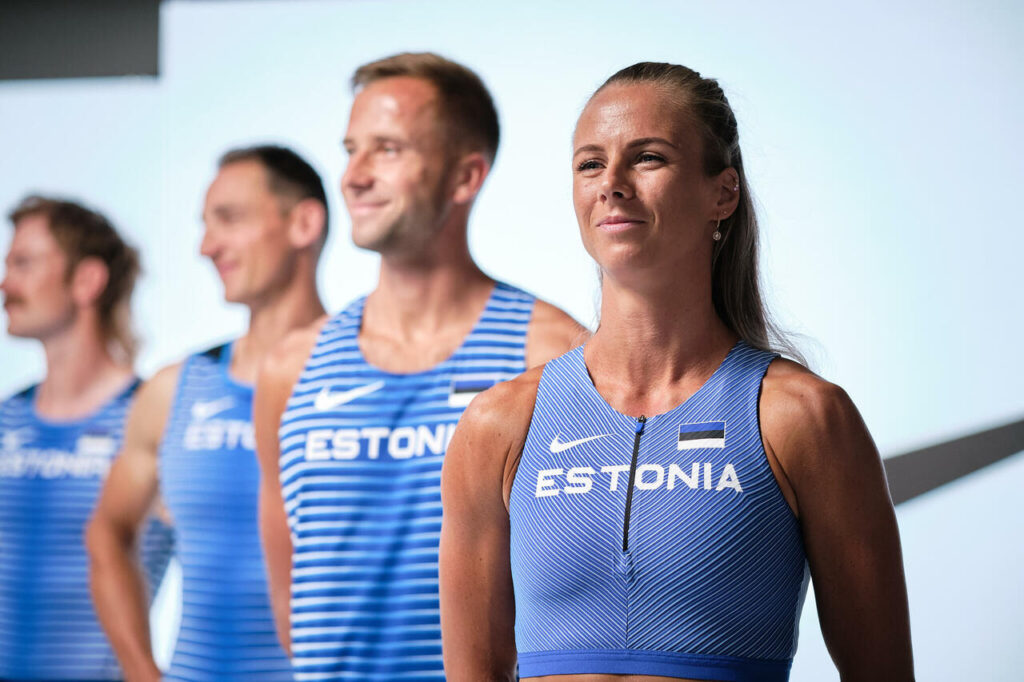Despite its small size, Estonia has done remarkably well in the history of the Olympics: it ranks number nine for the number of medals won per capita at the Summer Olympics from 1896 to 2016.
In total, Estonian athletes have won nine gold medals, nine silver medals and 16 bronze medals at the Summer Olympics from 1896 to 2016. This makes Estonia the ninth most successful Summer Olympic team on a per capita basis. In addition, the country’s sportsmen and sportswomen have won four gold medals, two silver medals and one bronze at the Winter Olympics from 1928 to 2018.
We take a brief look back at the history of Estonian Olympic performances.
Wrestling as the national sport
Until the early 20th century, most Estonians lived in the countryside, an environment conducive to early physical competitions: chubby Estonian farmers challenging each other to a little bit of wrestling.
Those Estonian residents who were lucky enough to go to university, however, could learn fencing as early as the early 1600s as the University of Tartu employed a fencing teacher.
Estonians, still ruled by Tsarist Russia, did not compete at the first modern Olympics in Athens, 1896, but the turn of the century nevertheless brought new sporting events to the country. Cycling, rowing, chess, weightlifting, tennis, and athletics gained popularity, while wrestling became a sort of national sport – for the first time, wrestlers had a chance to compete at gymnastics festivals and tournaments.
Soon, Estonia had its first sports idols: professional wrestlers Georg Lurich, Georg Hackenschmidt and Aleksander Aberg.
The first Olympic medal was brought home by wrestler Martin Klein in 1912 from Stockholm. Representing the Russian team, Klein won the silver medal in the middleweight class in the semifinal against the reigning world champion Alfred Asikainen. The two grappled for 11 hours and 40 minutes – the longest in the Olympic history – on a sunny day outdoors, until Klein managed to pin Asikainen.
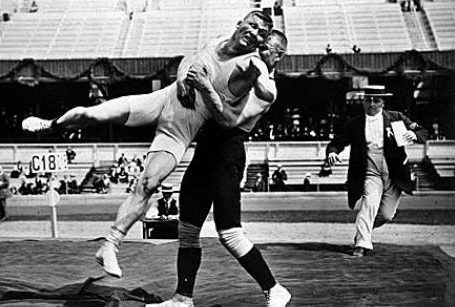
After becoming independent in 1918, Estonia made its debut as a sovereign country at the Antverp Olympic Games in 1920 and weightlifter Alfred Neuland immediately won the country’s first gold medal, while the rest of the team won two silver medals, in athletics and weightlifting.
The free and independent interwar period in Estonian sports was dominated by wrestling: Eduard Pütsep, Voldemar Väli, Osvald Käpp and Kristjan Palusalu won five gold medals between them, in 1924 Paris, 1928 Amsterdam, and 1936 Berlin Olympic games.
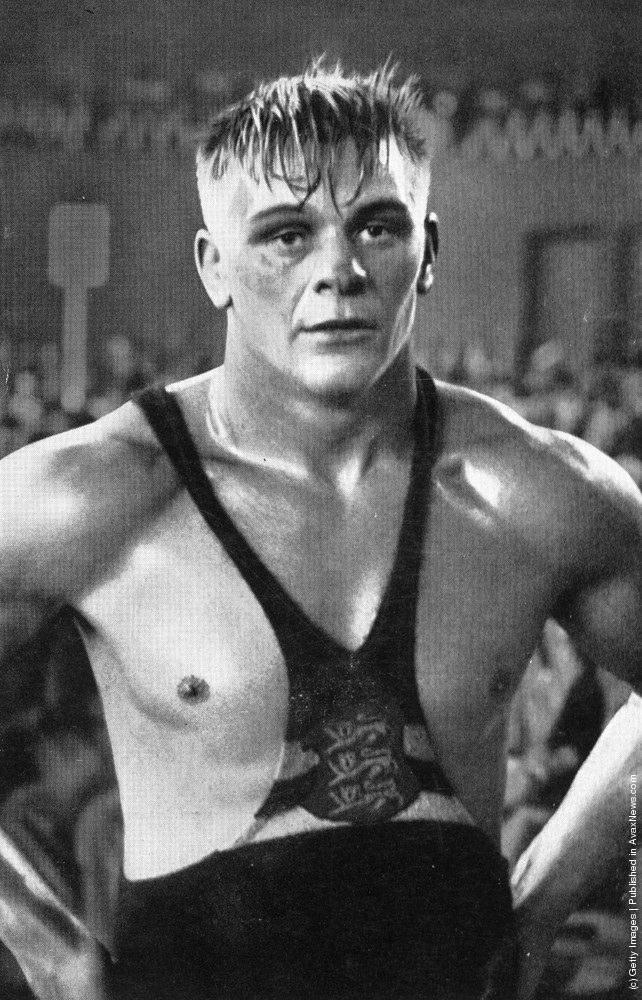
Palusalu, the heavy-weight wrestler who won both in Greco-Roman and free style in Berlin, was the biggest hero, receiving a farmhouse from the Estonian president for his achievement.
Estonians competing under the red flag
The Soviet occupation in 1940 meant the end of independent Estonian Olympic delegation, but not the end of independent spirit.
In the Cold War climate, the Olympic games were also used as a show-off between the two superpowers: the United States and the Soviet Union. The Soviets wanted to prove their ideology and model correct, pouring resources into building gyms, stadiums and swimming pools, while it was obligatory for schoolchildren to attend sports classes.
Estonian athletes carried on competing and participating at the Olympics as part of the Soviet team. Wrestler Johannes Kotkas won the first post-war gold medal in Helsinki, 1952.
Kotkas was the last Estonian wrestler to win gold, thus ending the imperial phase of this sports field in Estonia. Various other successful disciplines followed: Ants Antson was the fastest speed skater in Innsbruck Winter Olympics, 1964, Svetlana Chirkova from the local Estonia-Russian community shined as a fencer, winning two gold medals in Mexico, 1968, and Munich, 1972.
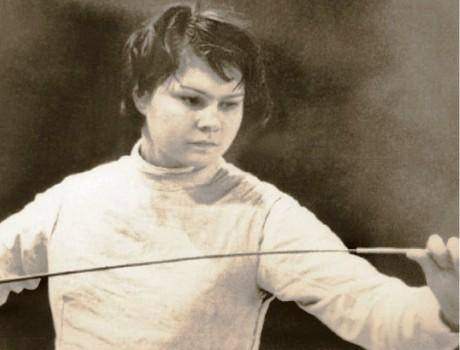
Gold medalists were also high jumper Jüri Tarmak and weightlifter Jaan Talts in Munich, cyclist Aavo Pikkuus in Montreal (1976), swimmer Ivar Stukolkin, triple jumper Jaak Uudmäe, volleyball player Viljar Loor and water polo player Mait Riisman in Moscow (1980).
Singing for heroes
When the Soviet team went to compete at the Seoul Olympics in 1988, the Estonian Singing Revolution was already in full swing – the recently unbanned, but still unofficial, national tricolours were waved throughout the summer in the open air concerts and events.
In Seoul, Tiit Sokk won the gold medal as a member of the Soviet Union basketball team and Erika Salumäe in track cycling.
While still enduring the communist red flag at the award ceremony in Seoul, upon their return to Tallinn, the athletes were greeted with a sea of Estonian blue, black and white flags. An impromptu concert at the Old Town square saw thousands of people lined up to sing patriotic songs and celebrate the success of Sokk and Salumäe – nationalist sentiment was running high.
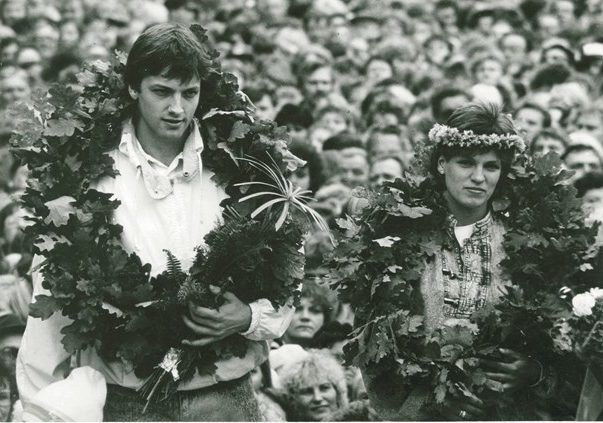
Emotions were running even higher when Erika Salumäe repeated her feat in Barcelona, four years later, beating her rivals at the women’s track cycling and becoming the first Estonian athlete to win an Olympic gold medal under Estonia’s flag since 1936.
Although Estonia’s blue, black and white flag was later raised upside down on a pole at the Olympic Velodrome’s medals ceremony, Salumäe shook her head in happy disbelief when the flag reached the top.
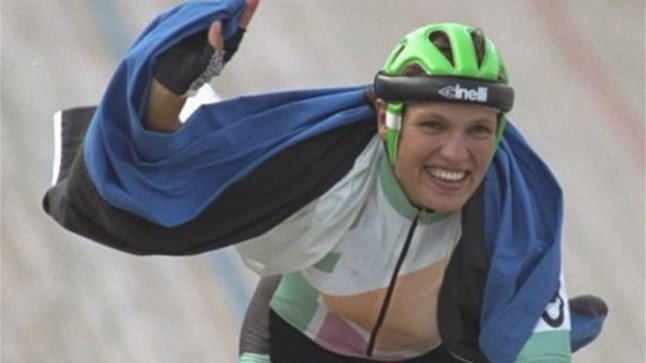
Six more gold medals for Estonian Olympic athletes have followed since – in summer sports, for Erki Nool in decathlon in Sydney (2000) and discus thrower Gerd Kanter in Beijing (2008), while cross-country skiers Andrus Veerpalu and Kristina Šmigun-Vähi dominated their fields in winter sports. Veerpalu won gold in Salt Lake City (2002) and Turin (2006) and Šmigun-Vähi two golds in Turin.
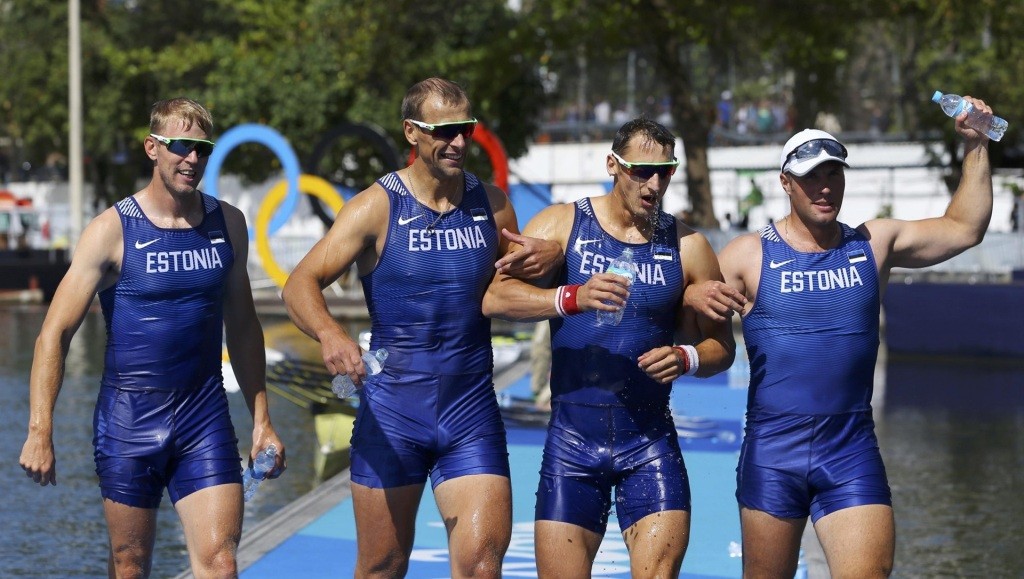
At the 2016 Summer Olympics in Rio de Janeiro, the Estonian team won a bronze medal, awarded to the rowing foursome of Tõnu Endrekson, Andrei Jämsä, Allar Raja and Kaspar Taimsoo in the men’s quadruple sculls.
Tokyo Olympic Games
At the Tokyo Olympic Games, Estonia is represented by 34 athletes from 14 sports.
Cycling: Tanel Kangert, Peeter Pruus, Janika Lõiv
Judo: Grigori Minaškin
Athletics: Ksenija Balta, Roman Fosti, Tiidrek Nurme, Rasmus Mägi, Maicel Uibo, Johannes Erm, Karel Tilga
Shooting: Peeter Olesk
Wrestling: Epp Mäe, Artur Vititin
Sailing: Ingrid Puusta, Karl-Martin Rammo
Equestrian: Dina Ellermann
Badminton: Kristin Kuuba, Raul Must
Rowing: Tõnu Endrekson, Jüri-Mikk Udam, Allar Raja, Kaspar Taimsoo, Johann Poolak (reserve)
Tennis: Anett Kontaveit
Triathlon: Kaidi Kivioja
Swimming: Eneli Jefimova, Kregor Zirk, Martin Allikvee
Fencing: Erika Kirpu, Julia Beljajeva, Katrina Lehis (won a bronze medal in women’s individual épée, Estonia’s first medal in Tokyo, on 24 July), Irina Embrich (reserve)
Archery: Reena Pärnat
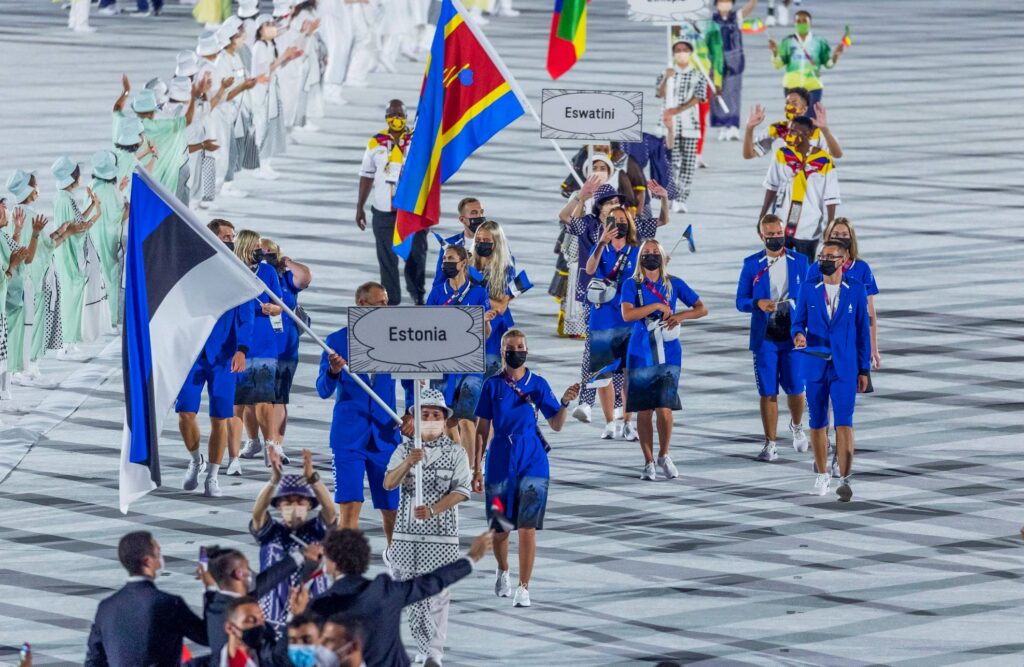
The Tokyo Summer Olympic Games started on 23 July and will last until 8 August.
Read also: Japanese artist turns Estonian Olympic athletes into anime characters.
I
Cover: Estonian athletes presenting their official sportswear prior to the Tokyo Summer Olympic Games, in June 2021. Photo by Hendrik Osula. Photos courtesy of Estonian Olympic Committee.

